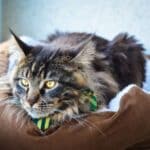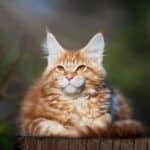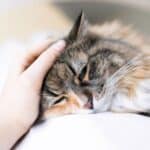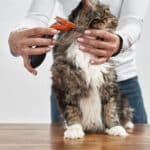As we have learned, the Maine Coon can make one of the best family pets, or members of the family that you could find. If you are looking to get one you can find Maine coon kittens for sale online. There are still things to watch for, just as we do with our human family members. The signs are given, we just need to know what to watch for.
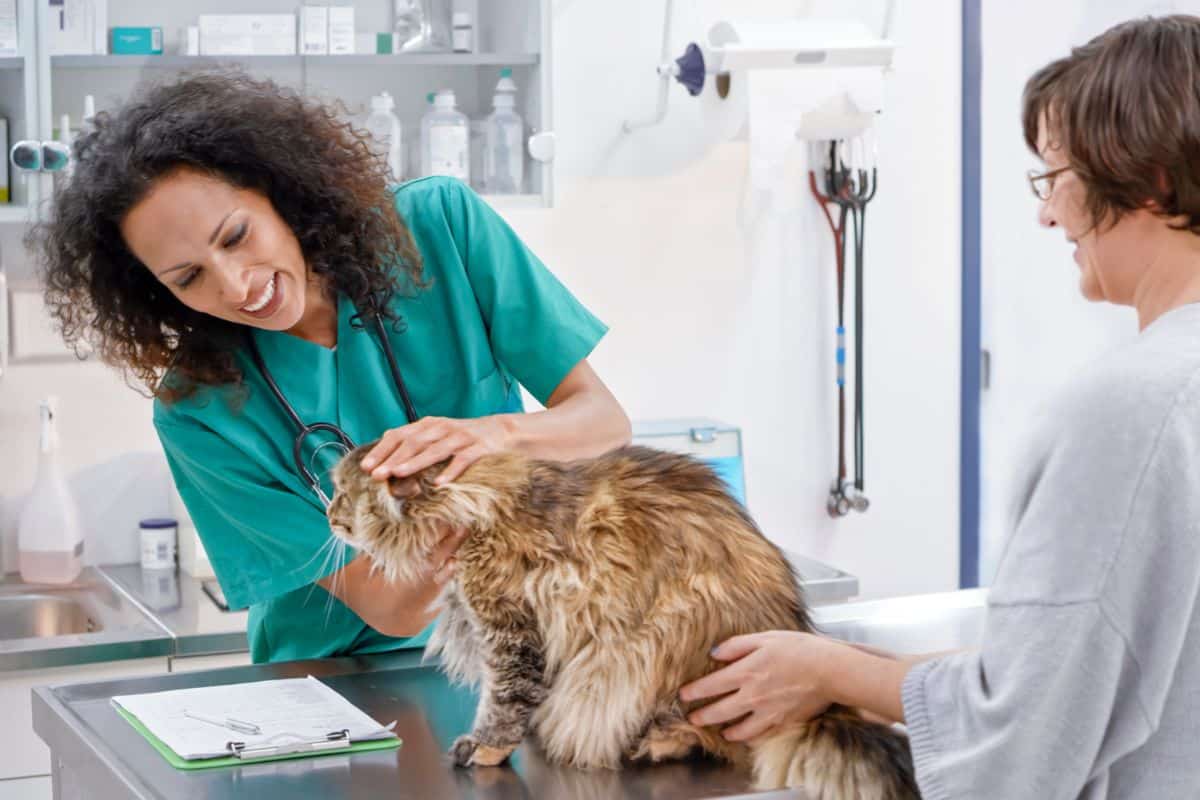
The general rule, according to vets, is that you should be taking your Maine Coon to the vet every six months to a year. This is when there are no signs of being ill or other issues. Consider this to be a well-child check up. Routine visits will help to prevent unexpected issues from popping up. Just as humans need to have yearly exams, your pets should also be seen once to twice a year.
At Risk
Maine Coon cats are prone to certain issues, just as all breeds could be. The ones that pertain to a Maine Coon include:
- Hip Dysplasia
- Hypertrophic Cardiomyopathy
- Spinal Atrophy
- Polycystic Kidney Disease
These are just a few of the major issues. Your vet will be watching for any of these at the routine check-ups. However, there are other signs that you should be on the lookout for. These will mean that your Maine Coon is sick, hurt or some other ailment is wrong. Simply stated, if your Maine Coon seems to be under the weather, just not acting normally then it is important to take your Maine Coon to the vet.
Some signs that are very out of place for the Maine Coon to watch for include, but are not limited to:
- Excessive Grooming
- Excessive drooling
- Lack of appetite
- Difficulty in breathing
- Twitching, not so much just when sleeping
- Immobility
- Consistent vomiting
- Constant vocalizations
- Hiding, more than usual
- Persistent sneezing and runny nose.
Any of these do indicate that your Maine Coon is not feeling like himself. It may be that it is a simple cold, it could be ear mites, an upset tummy from eating grass or a plant. As the owner, we can only venture a guess. The vet, on the other hand, will be able to determine if there is an issue.
Brushing
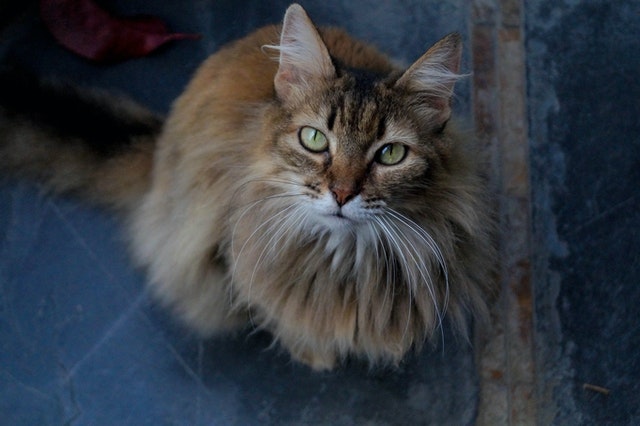
Brushing your Maine Coon is an essential groom care you must take with your baby. Although animals are known for grooming themselves, assisting by brushing the long coat will immensely help your Maine Coon. Hairballs are a common problem with cats. Those with longer, thicker fur need to get the loose hairs off. The way they do this is by grooming. This means that as they lick, they are naturally getting some of that fur into their system. Once the hair is in the digestive tract, it can sometimes ball up into clumps.
No products found.
This will cause the Maine Coon, as well as other breeds to cough up or vomit to get the hair ball out of its system. As you brush your Maine Coon, you are helping to remove the majority of the loose hairs that can lead to the hairballs. It is recommended that you brush your Maine Coon once or twice during a week.
Bathing
All cats are known for grooming themself. Most cats will have an aversion to water and will likely fight an actual bath in a tub of water. I would suggest washing your cat with a wet cloth to clean the areas that seem to be dirty. Especially if you notice that the Maine Coon’s fur is becoming greasy or stringy looking. A simple wipe down with a wet cloth should be all that is needed.
The hair could begin to get matted. This often happens if the cat cannot reach the area easily. For instance, my Maine Coon is slightly overweight and has a hard time reaching her back above her tail. This area is prone to matting on her. You would remedy this by brushing the cat routinely. However, if matting does occur you can attempt to remove the mat yourself or take the Maine Coon to a vet or an animal groomer. This person can remove the mat for you.
Nails
The Maine Coon has nails on their paws. This aids them in hunting or running in the wild. Since your Maine Coon is most likely an indoor cat, you should keep the nails trimmed. When the nails become too long, this can lead to issues of nails stuck into the carpet, clothing or furniture. This can be the cause of damage or lead to infections in the paws. It is always smarter to keep the nails trimmed on indoor pets. Again, your pet groomer is able to do the trimming if you are unsure of it.
Dental
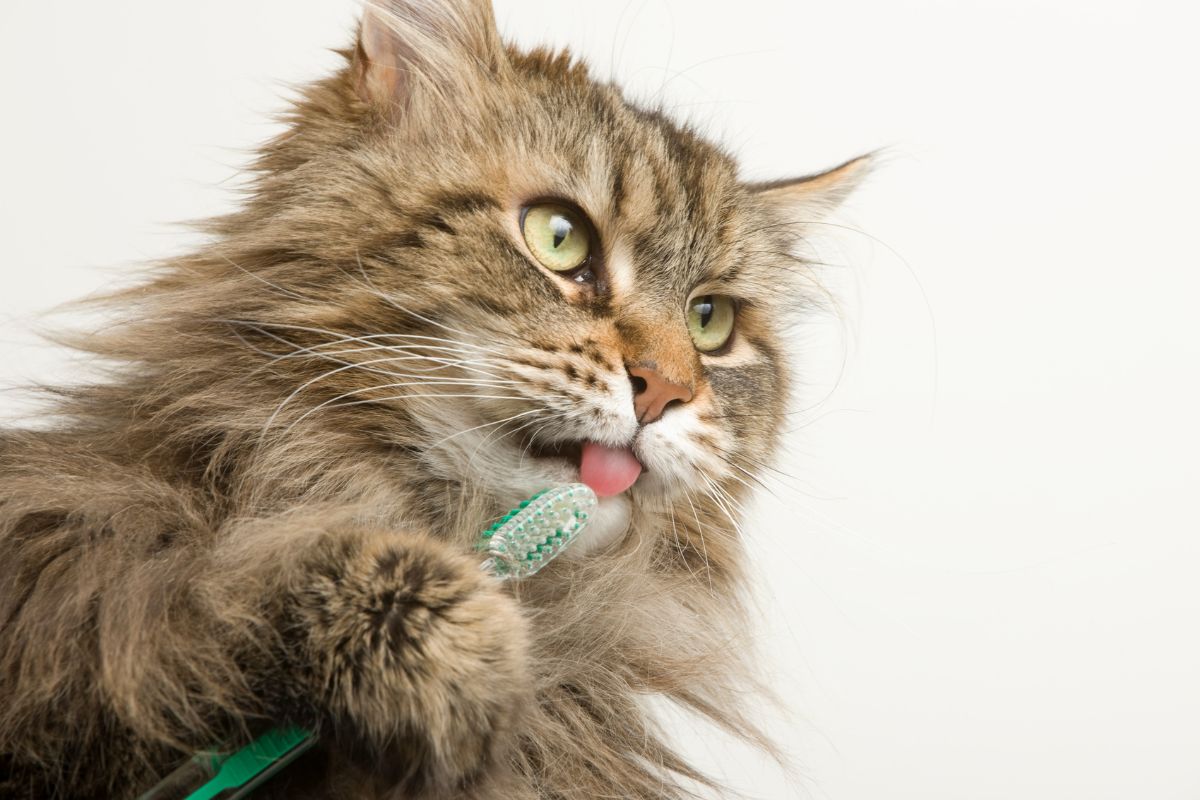
Ignoring the dental health of a Maine Coon can lead to serious issues just as with humans and canines. The Maine Coon should have regular dental brushing done. This will prevent tooth decay, periodontal disease or even loose or broken teeth. As many of us know, bad dental is the cause for health issues for us, so it is for animals also.
No products found.
Plus, it will help keep the breath much better smelling. Gingivitis can lead to serious problems for your Maine Coon. Most issues can be helped by using a mouth rinse recommended by the vet. If left untreated, gingivitis could lead to Stomatitis and periodontal diseases. These can be prevented by visiting the vet routinely.
Ears
The ears of a Maine Coon are prone to become dirty or have wax build up. This can lead to ear mites or infections. Ear mites can be easily treated by the vet. You will know that the Maine Coon likely has ear mites if there is constant scratching at the ears, head shaking or both. Take this behavior as a sign to bring your furry baby into his or her doctor. Just think how you feel when you have an earache, the difference is the Maine Coon is unable to do anything to help with this himself.
Once a week or once every couple of weeks, you can use an applicator to place some ear cleaner in the ear. Using an applicator will prevent you from sticking a qtip into the ear. Once you insert a drop of the cleaner, massage the upper cheeks to get the fluid into the ear where it can do the work of loosening the wax and dirt.
Vaccinations and DeWorming
Visiting the vet routinely will also ensure that your Maine Coon is getting the shots and other medical items that they need to remain healthy and happy for a long time. Deworming is to prevent worms and make your Maine Coons digestive system healthy. Vaccinations such as the Rabies shot are needed to prevent diseases happening to not only your Maine Coon, but also to you and your family.
Diet
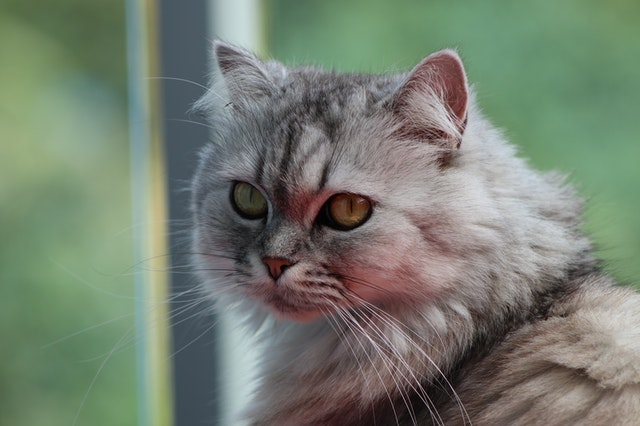
Just like all humans or other animals, your Maine Coon needs a proper diet. There are recommendations that your vet will give you that are based on the cats size, weight, activity level and age. When a Maine Coon is given too much food, they can become overweight.
Following the guidelines is best. Feeding your Maine Coon a high quality food that is low in fat is the best plan. Follow the instructions and your Maine Coon will have the amount necessary. Remember, just as with humans, being overweight can lead to more health issues, some can even become serious.
Eyes
Your gorgeous Maine Coon has very pretty eyes, it would be a terrible thing if something happened to the eyes that could have been prevented. Keep an eye on your Maine Coon’s eyes, if they become cloudy, or built up with stringy gunk they need to be seen by their vet. They may also scratch at their eyes, which could lead to scratches on the eye itself. This is another good reason to keep the nails trimmed on the paws, so they do not accidentally hurt themselves when scratching.
We all get sick at times, even our beloved pets. When you do not feel well, you take precautions. If you notice your children are not themselves, they may be listless or lethargic, you take them to be seen by their doctor or pediatrician. It truly is no different for a family pet. They cannot tell you exactly what is ailing them, so you need to be aware of your cat, of it’s behaviors and the way it is acting.
Be sure to brush your cat’s fur, clean the ears, trim his or her nails, prevent matting and of course, most importantly, take your Maine Coon to the vet for routine checkups, even if they do not have something ailing them. An ounce of prevention is the way to a healthy pet. Also, be sure that your vet is trained to understand Maine Coon cats and the issues they face, or diseases that they are prone to. This type of veterinarian will know what to watch for to keep your Maine Coon happy and healthy.

